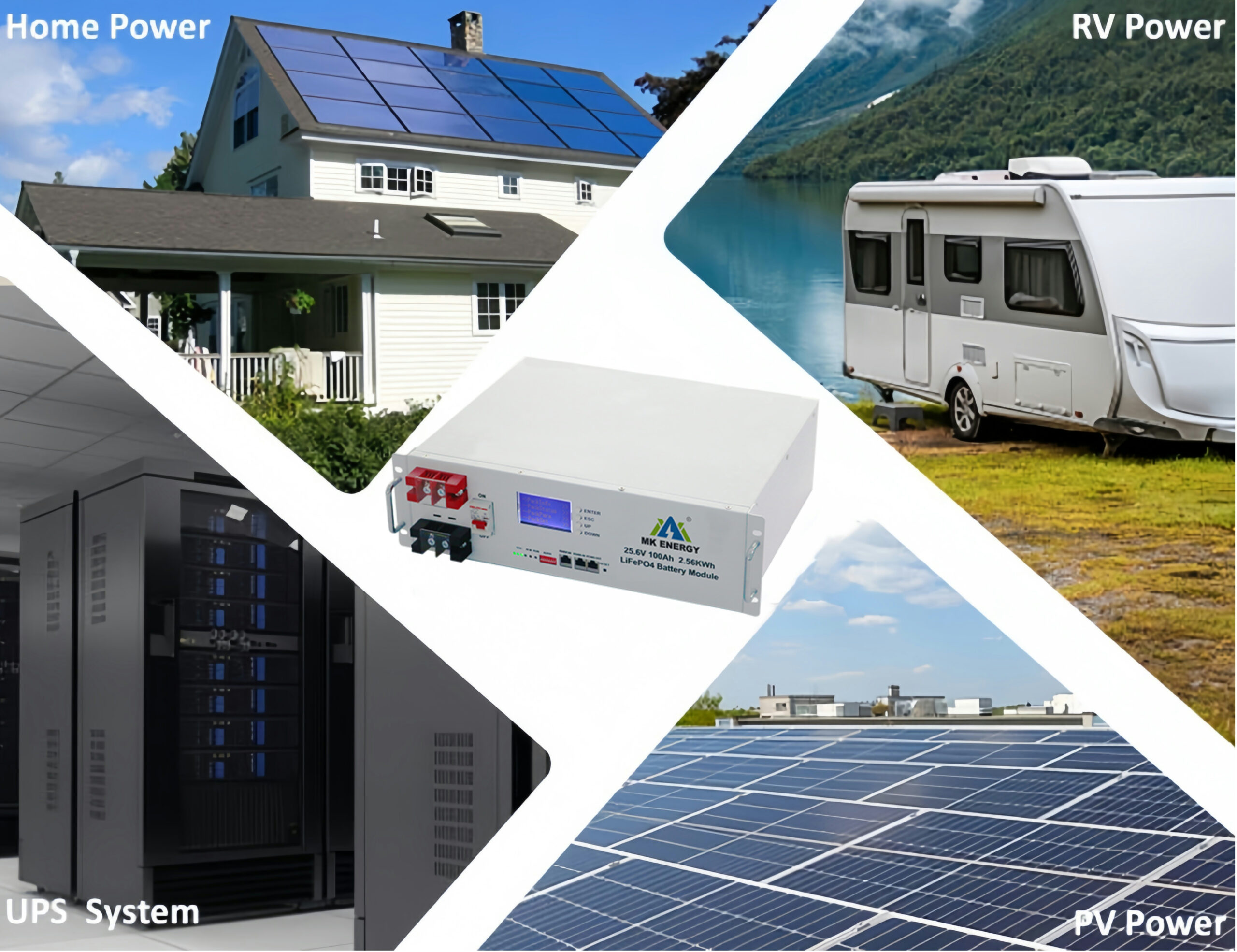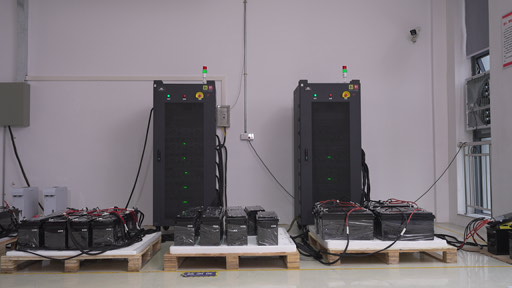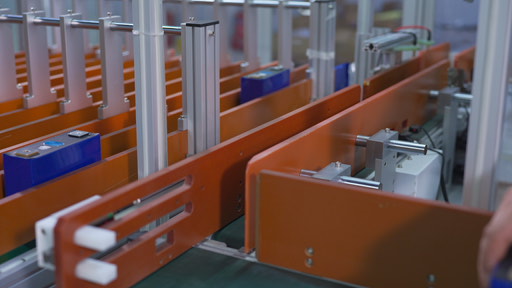As the world shifts toward sustainable and smart energy solutions, energy storage systems (ESS) are becoming essential for managing the growing demand for electricity. The integration of renewable energy sources such as solar and wind, along with the rising popularity of electric vehicles and decentralized energy grids, requires reliable, efficient, and intelligent energy storage solutions. Lithium battery packs, with their high energy density, long lifespan, and rapid charging capabilities, have already proven to be the foundation for modern energy storage systems. However, the future of energy storage lies in the intersection of lithium battery technology and advanced digital technologies.
Emerging technologies such as the Internet of Things (IoT), big data analytics, and artificial intelligence (AI) are revolutionizing the way energy storage systems are managed. By combining these technologies with lithium battery packs, it is possible to create highly intelligent, efficient, and self-optimizing energy storage systems. In this article, we will explore how these innovations are shaping the future of energy storage, enhancing the performance of lithium battery packs, and driving the development of intelligent energy storage systems (IESS).
The Role of IoT in Intelligent Energy Storage Systems
The Internet of Things (IoT) is fundamentally transforming industries by enabling devices to communicate, collect data, and respond to real-time conditions. In the context of energy storage, IoT technologies can be integrated into lithium battery packs to enable remote monitoring, data collection, and real-time decision-making.
a. Remote Monitoring and Control
With IoT-enabled sensors embedded in lithium battery packs, operators can remotely monitor the health, status, and performance of the energy storage system. These sensors continuously track key parameters such as voltage, temperature, charge/discharge cycles, and state of charge (SOC), providing operators with real-time insights into the system’s performance. This allows for quick identification of any issues and enables operators to take proactive actions before problems escalate.

Remote monitoring also allows for centralized control of multiple energy storage systems across a wide geographical area, enabling utilities or businesses to optimize energy flow and usage in real time. This is particularly valuable for large-scale applications like grid storage or industrial energy systems, where managing energy efficiently can lead to significant cost savings.
b. Data-Driven Insights for Optimization
By collecting data from a wide range of sensors and devices in an energy storage system, IoT can help identify patterns and anomalies in battery performance. Over time, this data can be used to create more accurate models of energy usage and battery behavior, which can inform smarter decision-making and predictive maintenance. For instance, IoT can provide insights into the optimal time for charging and discharging batteries based on energy demand and price signals, ensuring that energy storage systems operate in the most cost-effective way.
Big Data and Predictive Analytics: Enhancing Battery Efficiency and Longevity
The massive volume of data generated by IoT sensors can be harnessed through big data analytics to enhance the efficiency, reliability, and lifespan of lithium battery packs. Big data technologies allow for the collection, storage, and analysis of vast amounts of operational data, enabling businesses and utilities to optimize their energy storage systems.
a. Predictive Maintenance
Predictive maintenance is one of the most impactful applications of big data in energy storage systems. By analyzing historical and real-time data, machine learning algorithms can identify early warning signs of battery wear, degradation, or malfunction. For example, data patterns indicating an increase in temperature or irregular voltage fluctuations could signal an issue with the battery cells that requires attention.
Instead of relying on scheduled maintenance or reactive repairs, predictive maintenance allows operators to address issues before they result in failures or reduced performance. This reduces downtime, extends the lifespan of the batteries, and lowers operational costs by preventing costly emergency repairs or premature battery replacements.
b. Energy Efficiency Optimization
Big data analytics can also help optimize the energy efficiency of an entire energy storage system by analyzing usage patterns, weather data (for renewable energy applications), and electricity demand forecasts. This analysis enables energy storage systems to charge and discharge at the most efficient times, based on peak energy demand or renewable energy generation. By leveraging big data, lithium battery packs can ensure that stored energy is used in the most efficient way possible, helping to balance grid loads and reduce energy waste.
Additionally, energy efficiency optimization can be applied to commercial and residential energy systems, where users can automate the charge/discharge cycles of their battery packs based on time-of-use pricing and other cost-saving strategies.
Artificial Intelligence: Driving Smarter Energy Storage Management
Artificial Intelligence (AI) takes energy storage to the next level by enabling the system to learn, adapt, and make decisions autonomously. By processing vast amounts of data collected from IoT sensors and big data analytics, AI algorithms can identify optimal strategies for managing energy storage and ensure that the system adapts to changing conditions.
a. Intelligent Load Forecasting and Demand Response
AI can be used to predict energy demand and adjust battery usage accordingly. By analyzing historical data and real-time factors such as weather patterns, grid conditions, and market prices, AI can forecast peak demand periods and adjust the charge/discharge cycles of lithium battery packs in anticipation. For instance, AI can predict when electricity prices are likely to rise, enabling the battery to store excess energy when prices are low and discharge it when prices are high, reducing overall energy costs for businesses or consumers.
AI-driven demand response capabilities can also be used to optimize energy storage in industrial or commercial settings. In these environments, AI systems can dynamically adjust energy consumption based on real-time demand, helping businesses minimize energy costs and contribute to grid stability.
b. Battery Health Management and Optimization

AI-powered algorithms can optimize battery health by continuously monitoring key parameters such as charge cycles, temperature, and state of health (SOH). AI can predict the remaining useful life of lithium batteries and recommend optimal charge/discharge strategies to maximize lifespan and performance. These strategies could include adjusting charging rates, operating within specific temperature ranges, and balancing individual cells to avoid imbalances and premature wear.
Over time, AI can “learn” from the system’s data, becoming more accurate in predicting battery behavior and optimizing performance. This ensures that the energy storage system operates at its peak efficiency throughout its lifecycle.
The Future of Intelligent Energy Storage Systems
As lithium battery technology continues to evolve, the integration of advanced technologies such as IoT, big data, and AI will play an increasingly critical role in the development of intelligent energy storage systems. The future of energy storage lies in fully autonomous systems capable of self-monitoring, self-optimizing, and self-healing. In the coming years, we can expect to see:
- More Advanced Energy Storage Algorithms: AI algorithms will continue to improve, enabling smarter energy storage systems that can make real-time, optimal decisions based on a wider range of inputs.
- Fully Integrated Smart Grids: Energy storage systems will become seamlessly integrated with smart grids, allowing for real-time optimization of energy distribution, reducing inefficiencies, and increasing overall grid reliability.
- Battery Recycling and Second-Life Use: With the rise of intelligent energy systems, there will be greater opportunities for battery packs to be reused or recycled in ways that extend their life cycle, further improving sustainability in the energy storage sector.
- Increased Automation and Autonomy: Future energy storage systems will become more automated, allowing for reduced human intervention, fewer maintenance requirements, and better energy management. This will benefit both residential and industrial users by providing more reliable, cost-effective energy storage solutions.
Conclusion
The combination of lithium battery packs with advanced technologies like IoT, big data, and AI is ushering in a new era of intelligent energy storage systems. These systems are more efficient, reliable, and capable of self-optimizing, allowing for smarter energy management across industries. By integrating remote monitoring, predictive maintenance, and real-time energy optimization, lithium battery packs will play an increasingly important role in the future of energy storage.
At MK, we are excited to be part of this transformative journey. By continually innovating and adopting the latest technologies, we are helping pave the way for smarter, greener, and more sustainable energy storage solutions that will drive the future of energy management.

